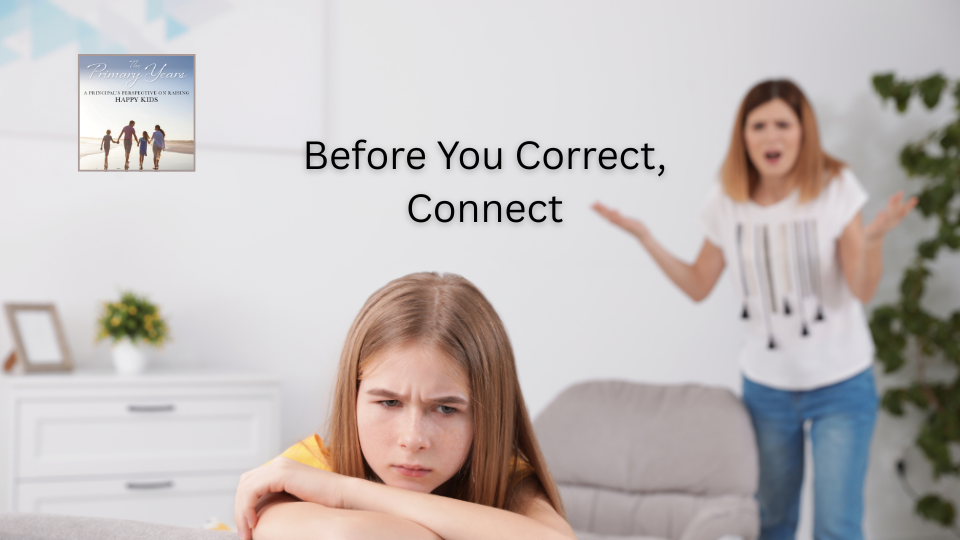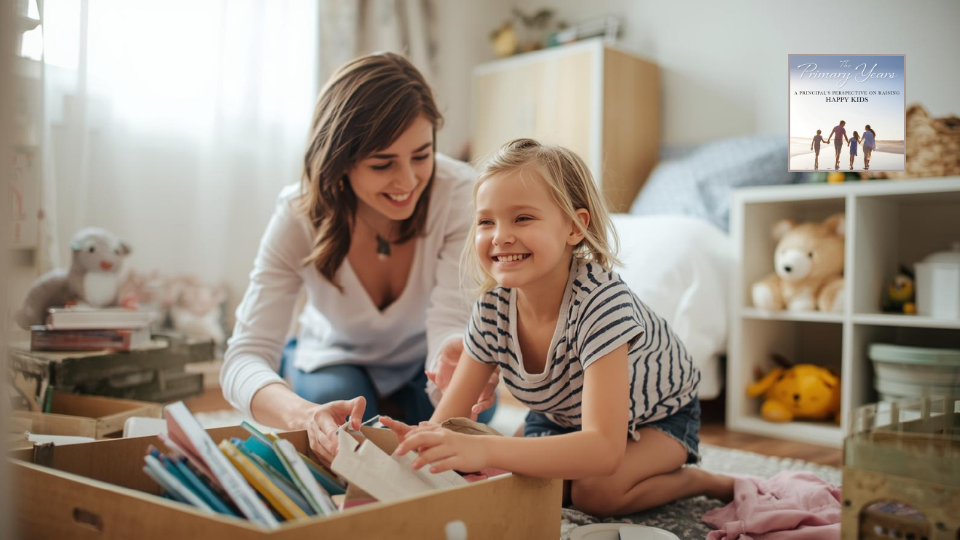
Before You Correct, Connect
Sometimes what looks like defiance, meltdowns, or acting out is actually a message, and when we learn to hear it, everything shifts. A small change in approach today can build something much bigger tomorrow.

Helping Your Child Learn to Love Reading
As the new school year begins, reading will play a big part in your child's day. The good news is, you don't need to make reading a chore, you just need to make it enjoyable. Sit close, share a book, and let your child pick the story. Stay calm if they stumble on words, and don't rush. A child who feels safe and supported while reading will grow into a child who truly loves it.

Let's help our children learn and grow in their own way
Every parent knows the urge to step in the moment things get hard. But children don't grow because we made it easier, instead, they grow because we stayed close enough to matter, and trusted them enough to let them try.

It's not about being perfect, rather being independent
We tie their shoes so they're not late. We pack their bag so nothing's forgotten. We jump in before they can fail.
We think we're helping — but what if we're actually getting in the way?
As the school year unfolds, the greatest gift we can give our children isn't a perfectly smooth day. It's the chance to figure things out on their own.

How to be present straight after school each day?
That immediate after-school window is one of the most important and trickiest times to connect with your child. Here are gentle, practical ways to transform the after-school rush into a space of safety and reconnection.

A few thoughts to keep in mind late January
The new school term is here. Are you and your child ready to embrace the change? Moving from holiday mode to school routines is more than just packing bags, it's about nurturing growth in every way: social, emotional, intellectual, and physical.

Lets help our children start well
The age-old adage, “Well begun is half done,” holds a special wisdom as the school holidays draw to a close. How a child starts this new chapter can set the tone for the weeks and months ahead, turning apprehension into anticipation and uncertainty into confidence. Gail Smith shares thoughtful strategies to help your family cultivate the art of a good beginning, ensuring a smoother, happier transition into the new school year.

As holidays end what to think about
As the school holidays begin to wind down, a familiar mix of emotions emerges with lingering freedom alongside the gentle pull of the new school year. In this blog, Gail Smith offers gentle, actionable tips to help your child (and you!) warm up to the coming term, focusing on connection, comfort, and taking it one small step at a time.

Why Your Child’s Mental Health Matters
What's the one thing that influences your child's ability to learn, build friendships, and navigate challenges? It's not the latest educational toy or a packed extracurricular calendar. It's their mental health. Discover why creating a foundation of emotional safety is the greatest gift you can give your child.

Let the Homework Belong to Them: Smart Tips for Parents
Homework isn’t about perfect answers, it’s about your child learning to trust their own mind. The magic happens when we shift from fixing to supporting our children.

Why Really Listening to Your Child Matters
Ever find yourself nodding while your child talks, but your mind’s miles away? In this blog, we explore the power of truly listening. Just a few focused minutes can build trust, support mental wellbeing, and deepen your connection, more than you might think. Read on to find out how.